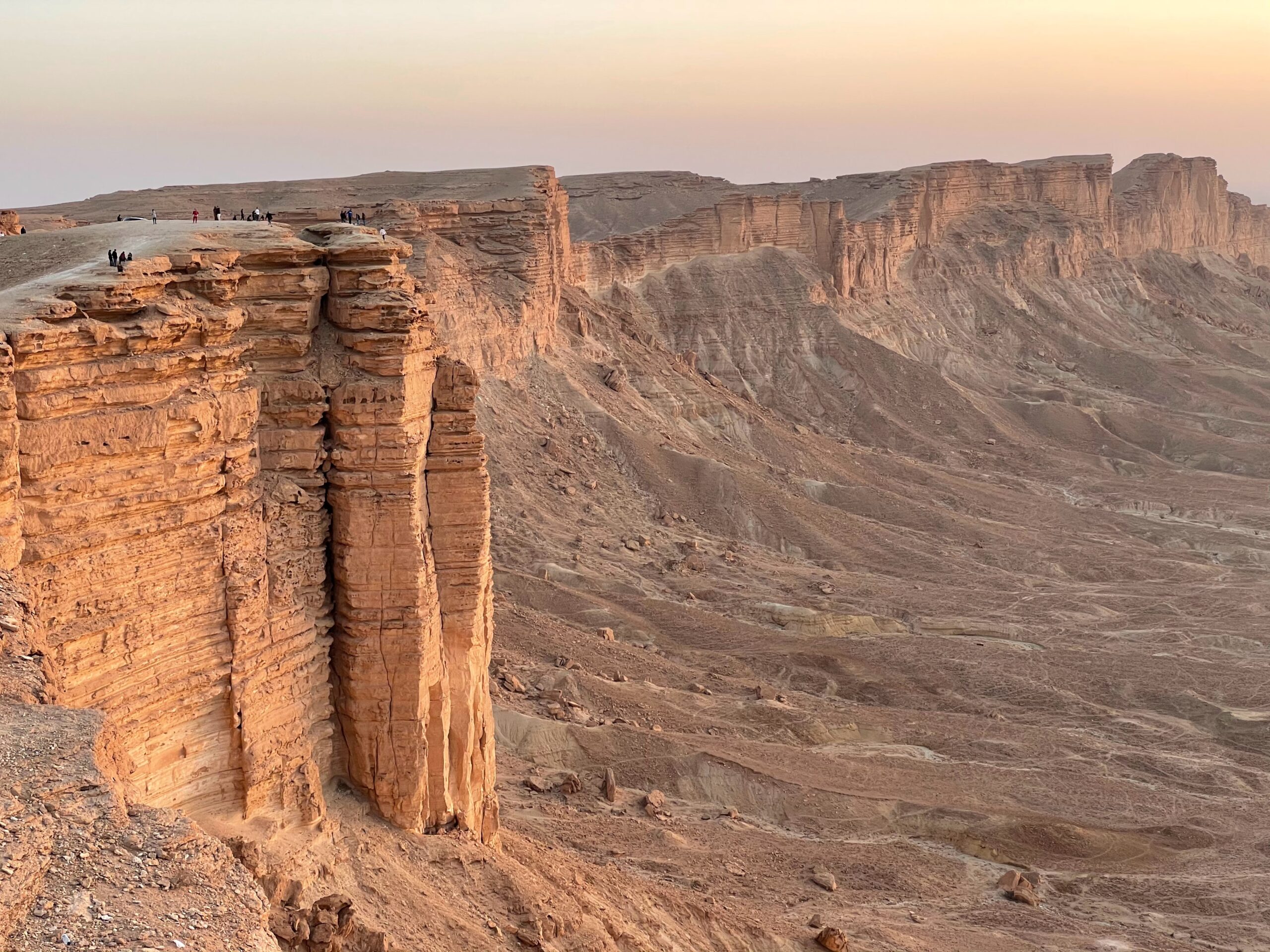“The future of urban living.” “A civilizational revolution that puts humans first”— these are just a couple of the taglines found on the Line’s website, showcasing Saudi Arabia’s most ambitious project yet. Directed by the NEOM Company Board, the $500 billion project, intended to span 170 km across the northwest of Saudi Arabia, is a vertical garden city that will fully rely on renewable energy to function and will preserve 95% of land for nature, all while accommodating 9 million people. The word urbanization is sprinkled throughout the site, emphasizing the convolution of futuristic architecture with untouched nature. To the unassuming individual, this is a triumph for the future, seamlessly blending urbanism and liveability while creating new socio-economic opportunities. However, while its innovation may be directed by notable figures such as His Royal Highness Mohammed bin Salman, one of the project’s more discrete yet important qualities is the immense amount of labour it requires. In this light, questions regarding Saudi Arabia’s treatment of migrant workers are brought up.
The Line exudes sustainability and a human-first perspective, as the project’s description outlines the closeness of nature, preventative healthcare, and a transport system that does not include cars or fuel, leading to a zero-pollution city. However, this human-first perspective may not be adopted in all aspects of the Line, specifically in its construction. Before the NEOM group project can begin attracting citizens with its closeness to nature, absence of carbon emissions, and flying taxis, this city must first be built, presumably by Saudi Arabia’s migrant-worker population. Migrant workers largely contribute to Saudi Arabia’s working population, with millions “[filling] mostly manual, clerical, and service jobs in Saudi Arabia, constituting more than 80 percent of the private sector workforce,” according to the Humans Right Watch. With an estimated completion date of 2030, the Line project demands a large workforce. However, with such a workforce required, this draws into question ongoing human rights violations against Saudi Arabia’s working population. While Saudi Arabia has introduced labour reforms in the past, these are limited in nature and fail to dismount the harsh Kafala system Saudi Arabia often operates on. With the Kafala system, there is an extreme dependency on the employer for the worker to reside, enter, and be employed within the country. This sponsorship system that migrant workers operate under poses serious risks to employees. Workers are at constant risk of passport confiscations by their employers, delayed or unpaid wages, and often spend the first few years of work to pay off recruiter’s fees before earning an actual income. Despite labour reforms in March 2021, the migrant population is still at risk for such violations, as elements of the Kafala largely operate in the new system and endure severe working conditions, from long hours to scorching temperatures.
Saudi Arabia has been criticized for human rights violations, from the unlawful treatment of migrant workers to cruel living conditions in deportation centres and executions. During the pandemic, leaked footage of a deportation centre in Riyadh, Saudi Arabia, showed hundreds of migrant workers crammed in a single room. Allegations of abuse, including torture and killing, shed light on the cruel system that exploits workers. Nadia Hardman, a refugee and migrant rights researcher at Human Rights Watch, stated, “Saudi Arabia, one of the world’s richest countries, has no excuse for detaining migrant workers in appalling conditions, in the middle of a health pandemic, for months on end.”. Further, concerning the Line, human rights organization ALQST reported that “three men forcibly evicted from the NEOM site in Saudi Arabia [had] been sentenced to death in October 2022”. The three men, who were members of the Hawaitat tribe and had been displaced due to the construction of the Line, allegedly criticized the forcible movement of locals for the new construction and were punished with death for refusing to comply. Joining workers’ unions and protesting are other aspects prohibited by the strict system Saudi Arabia operates under, and they continue to affect both migrant workers and citizens to this day. Torture, silence, and removal are in clear contrast with the future that the Line hopes to achieve— one where people and nature intertwine and live harmoniously in an efficient community. Meanwhile, the Line’s foundation may be supporting much more than infrastructure, such as human rights violations, inadequate migrant worker protection policies, and the displacement of citizens.
The concept of the Line may seem like a step towards the future, with its environmentally efficient structure and potential for a new way of living, but in practice, this step has not been made when the migrant workers building the new green city have yet to have equal rights and treatment as those they work for. In order for this project to be futuristic and progressive on all fronts, groups such as the NEOM have the opportunity and can be a platform to aid Saudi Arabia’s migrant workers by ensuring that the development of such a project advances without exploiting and abusing workers trying to make ends meet.
Edited by Sabrina Nelson
Mayah Esmail is a U2 student at McGill University pursuing a major in Economics and a minor in Psychology. She is originally from Vancouver, BC, and her interests vary from economic policies, feminism, and socio-cultural issues.

